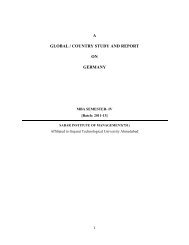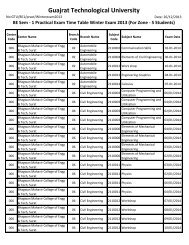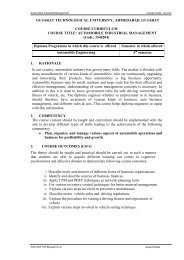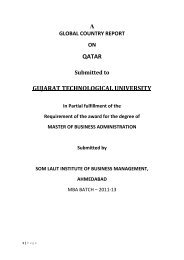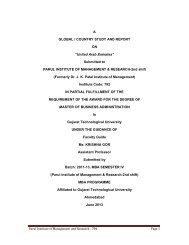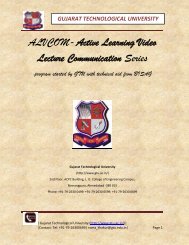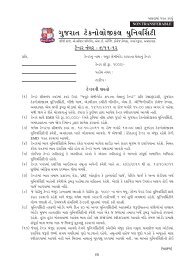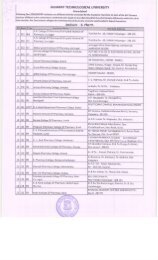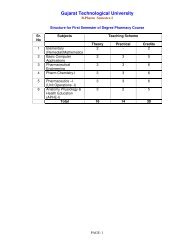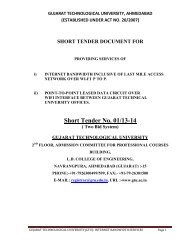708-Chaudhari Technical Institute, Gandhinagar - Gujarat ...
708-Chaudhari Technical Institute, Gandhinagar - Gujarat ...
708-Chaudhari Technical Institute, Gandhinagar - Gujarat ...
You also want an ePaper? Increase the reach of your titles
YUMPU automatically turns print PDFs into web optimized ePapers that Google loves.
Bilateral Trade<br />
In 2007-08, Japan ranked third amongst India’s trading partners.<br />
Bilateral trade between Japan and India has been rising steadily since 2003.<br />
From $4.37 billion in2003-04, it raised to $6.5 billion in 2005-06, $7.45 billion<br />
in 2006-07 and to $10.17billion in 2007-08. The growth rate during this fiveyear<br />
period was 35.56 per cent. The Confederation of Indian Industry (CII)<br />
estimates that the trade volume could touch $15 billion by 2010 if issues like<br />
trade facilitation and non-tariff barriers were addressed.<br />
Exports<br />
Exports from India to Japan touched $3.85 billion in 2007-08, an increase of<br />
34.73per cent over the $2.86 billion registered in 2006-07. In the first quarter<br />
of the Indian fiscal year 2008, India exported goods worth $786.10 million.<br />
India’s exports to Japan consist largely of raw materials, minerals such as<br />
raw iron ore, agricultural products, marine products, pearls, semi-precious<br />
stones and imitation jewelry. In 2007- 08, Japan imported $1276.24 million<br />
worth of minerals from India, an increase of185.883per cent from 2006-07.<br />
This was followed by $451 million worth of natural pearls, semi-precious<br />
stones and imitation jewelry. Other items exported to Japan include<br />
agricultural products, handicrafts, cotton, carpets, leather garments and<br />
goods, fresh fruits/juices and dried fruits, spices and herbs. Japan is also the<br />
largest importer of Indian shrimps .In an attempt to boost exports of organic<br />
products to Japan, the Agricultural and Processed Food Products Export<br />
Development Authority (APEDA) has suggested that the Japanese<br />
government accord equal status to Indian certification agencies. The step will<br />
go a long way in reducing the cost of these products in the Japanese market.<br />
At present, the prices of products exported to Japan are significantly high ET<br />
that hose exported to other countries. This is because the cost of certification<br />
by Japanese agencies is much higher than that charged by Indian agencies.<br />
Once Indian agencies get equivalence of standards and certification with<br />
their Japanese counterparts, the former, accredited by APEDA, can certify<br />
organic products. Organic products that are exported by India include<br />
basmati rice, honey, spices, tea, garments and some dry fruits.<br />
123



